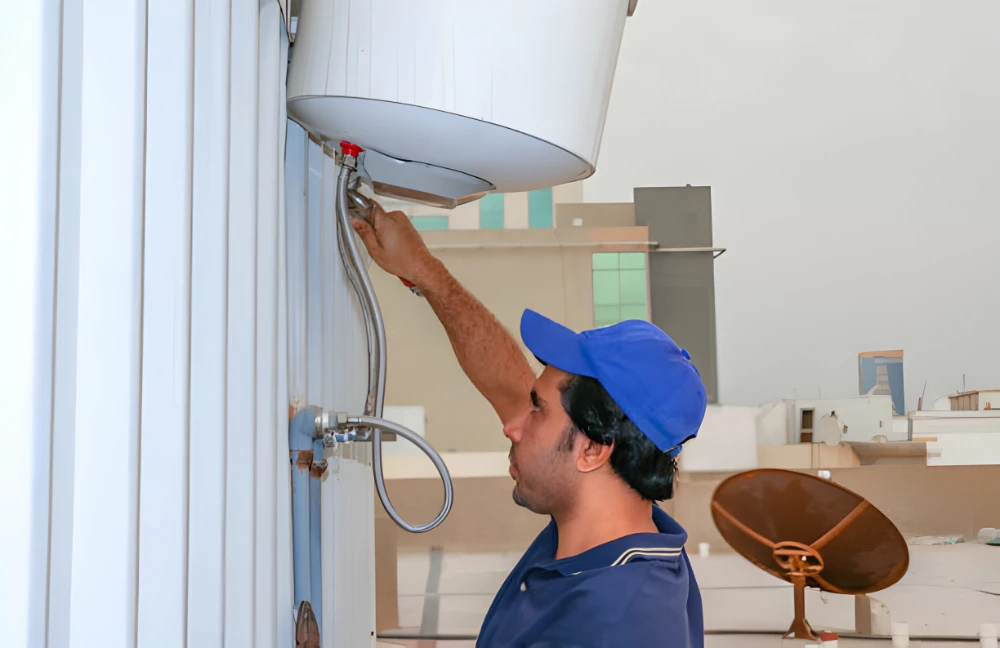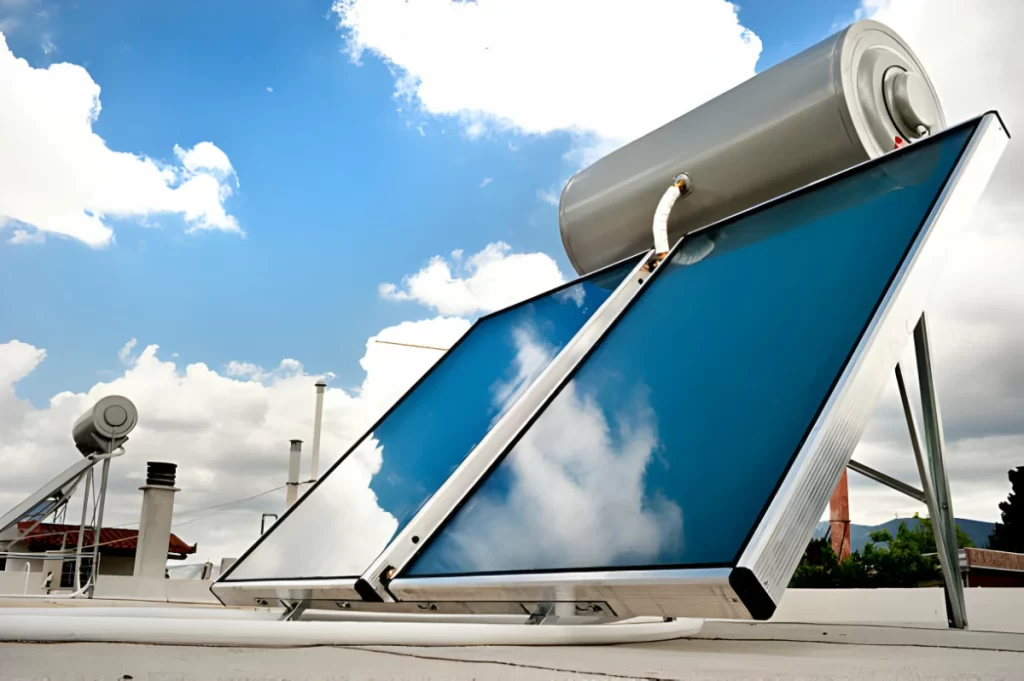Nobody wants to waste over $4,000, which might be the cost of a solar-powered water heating system. You likely got your heating system in hopes of cutting back on costs or setting back your carbon footprint. And yet, this system can present all sorts of problems.
Before you decide to throw away this investment, have you considered why exactly it broke down? And, is there a way to fix it?
In this blog, you’ll discover what’s most likely to go wrong in your system and how you can fix it. Then, we’ll take you through some troubleshooting to verify that your system works correctly.
Common Solar Hot Water Problems

Here are the problems you are most likely to encounter with this system:
1. No Hot Water
The most obvious problem you can have with your solar heating system is that the water is completely cold. Though this is a common problem, it can have a multitude of causes:
- Shade: If sunrays can’t reach your solar panels, your system can’t heat water. And so, you’ll have to move your panels till they can receive natural light.
- Damaged Glass: Broken solar panels don’t heat water. That means you’ll need to replace the glass.
- No Connection: If your system isn’t connected properly, current won’t flow through it. To fix this issue, you should hire a technician to pinpoint and repair the damaged Solar Hot Water system.
- Broken Regulator: You won’t get hot water if this equipment malfunctions. You’re better off getting a professional to replace your regulator.
2. Panels Move
You’ll need to repair your system if these pieces aren’t stable. Otherwise, panels could detach and cause an accident. Plus, wiring can come loose and affect your heating system.
3. Low Pressure or No Water
Another common problem with solar hot water is that it doesn’t come out of the tap with enough pressure. If your hot water comes out in dribbles or not at all, your pipes might have a blockage. This is the sign of either your pump malfunctioning or a build-up of sediment.
If the issue is with your pump, it might be that debris is clogging it or it is otherwise malfunctioning. In this case, you’ll need to clean it. And if the problem persists, replace your pump.
On the other hand, if you have a build-up of sediment you should use a cleansing agent. This will help clear your pipes. But if there’s too much build-up, call a plumber to solve this issue.
4. Heating System Makes Strange Sounds
At times, your heating system might produce odd noises. The most likely reason is there’s silt or some other obstruction in your pump. You can fix this by cleaning your pump.
However, if the pump still makes these sounds after you’ve washed it, you should replace it. Then, the noises should stop.
5. Water Isn’t Hot Enough
Sometimes, you’ll get lukewarm water. How you go about fixing this issue depends on where it stems from:
- Loose Wiring: If your system has this problem, you should call a technician. They’ll safely tighten your wiring and you’ll have hot water.
- Small System: From not enough panels to an insufficient tank, if your system isn’t sized properly it won’t heat your water well. And so, you’ll need to check either with the manufacturer or a plumber to know what size equipment you need. Then, you should replace your heating system.
6. Heat Transfer Liquid Leaks
One of the common problems with solar hot water is leaking. You’ll find this kind of damage if these pieces of your system break:
- Seals
- Tubes
- Solar Panel Glass
- Pipes
- Regulator
- Collector Glass
In each of these cases, you should replace the equipment. However, if this makes no difference, call a plumber. They’ll isolate the issue and efficiently fix it.
7. Heating System Has Holes
You might have noticed small holes or even just little piles of sand. These are the signs of a pest infestation. In particular, ants dig their way through heating systems and their insulation. And so, you’ll need to eliminate these pests and replace the damaged parts.
How to Check If Solar Hot Water Is Working Properly

If you want to know whether your system runs well, you’ll need to inspect every piece of equipment including:
- Insulation: Your system should retain heat well.
- Wiring, Bolts, and Nuts: You should ensure they’re attached tightly.
- Seals: They should be intact ― no damage or leaking.
- Motor Pump: You should clean it and ensure it provides enough pressure and doesn’t make strange sounds.
- Panels: They should be clean and intact. They should face the sky and not be in the shade. Moreover, you should ensure the panels are well-attached to your roof.
If any part of your heating system breaks, you’ll need to replace it. Once you’re sure all your equipment functions properly, you should test your heating system. Therefore, on a day when your panels have received sufficient sunlight, you should turn all taps off. Let the water heat up and then turn one hot water tap on. You should test its temperature to confirm that it is hot enough.
Additional Tips
Here are some solar hot water troubleshooting tips you can use if you have issues with your heating system:
Use Softener in Hard Water: You should test your water for sediment. If your water is ‘hard’, your system is more likely to have a buildup of sediment. If your water is hard, use a liquid softener. It’ll keep the sediment from damaging your equipment.
Clean Your Panels: Dust and grime will affect your system efficiency. So, if you clean it, your system will perform better.
Repaint Your Panels: You should reapply fire-resistant paint if they’re chipping.
Flip Circuit Breaker: If your heating system connects to your electricity, check that it isn’t switched off. Turn your breaker back on if it is.
Summary
Understanding the common problems with solar hot water systems is crucial. Each issue typically has a simple solution, whether it involves cleaning the equipment or reattaching parts. You can often perform these fixes yourself. To ensure your system is functioning correctly, inspect and maintain each component, cleaning and replacing parts as needed. However, if problems persist, it’s wise to rely on a professional plumber for repair. This approach will help you maintain an efficient and effective heating system.




